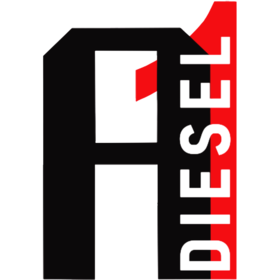Diesel engine downtime is a silent killer of productivity in Ghana, costing the mining and agricultural sectors millions of cedis annually. With the nation’s economic growth intertwined with the performance of these two vital industries, every moment of equipment failure translates to lost revenue, wasted resources, and a direct threat to our collective progress. The cost of mining equipment downtime, for instance, averages an alarming $180,000 per incident globally, and with Ghana’s mining industry already facing a decline in its growth rate from 3.8% in 2022 to 2.9% in 2023, the urgency to address this issue has never been greater.
From the gold mines of Tarkwa to the cocoa farms of the Ashanti Region, diesel-powered machinery is the lifeblood of Ghana’s industrial and agricultural sectors. The mining industry, a cornerstone of the national economy, spent over USD 490 million on diesel in 2022, a figure that rose by more than 6.5% in 2023. This massive fuel consumption underscores a deep reliance on diesel engines to power everything from haul trucks to excavators. Similarly, Ghana’s agricultural ambitions are pinned on mechanisation, with the country importing $900 million in agricultural technology and equipment in 2020. Tractors, predominantly diesel-powered, represent over 41% of Africa’s agricultural machinery market, and regions like Ejura are home to the highest concentration of these workhorses in Ghana.
The real-world impact of diesel engine failure extends far beyond the immediate cost of repairs. For a mining operation, a single stalled haul truck can bring a multi-million-dollar production chain to a grinding halt. In agriculture, a malfunctioning tractor during planting or harvesting season can mean the difference between a profitable year and a devastating loss. Beyond the direct financial hit, engine failures lead to wasted fuel, project delays, and increased operational costs. In a nation already losing an estimated $2.1 million daily due to electricity supply challenges, the added burden of mechanical downtime is a critical issue that demands a strategic response.
The demand for diesel engine repair in Ghana is driven by a perfect storm of factors. Much of the equipment in use is overworked, operating in harsh and demanding conditions. In the mining sector, the constant dust and heavy loads take a toll on engines. In agriculture, the limited availability of tractors means existing machines are pushed to their limits. This relentless usage, combined with a challenging climate and often-inconsistent fuel quality, creates a high-stakes environment where engine components are prone to failure. The result is a constant need for reliable, expert diesel engine repair in Ghana.
When a critical piece of equipment fails, businesses are faced with a choice. The default option for many has been to turn to the Original Equipment Manufacturers (OEMs) and their authorised dealers, such as Mantrac for Caterpillar and Komatsu equipment, or Kanu Equipment for Liebherr and Bell. While these providers offer brand-specific expertise, they often come with high costs and long lead times for parts. On the other end of the spectrum are the countless small, independent mechanics, who may offer a cheaper solution but often lack the specialised diagnostic tools and certified training to address complex modern diesel engine problems.
Bridging this gap is a new breed of independent, technically-focused service provider. A1 Diesel Ltd with its headquarters on Spintex Road in Accra and a nationwide reach that includes Kumasi and Takoradi, has emerged as a leading specialist in diesel engine repair. As a BOSCH and ZF-certified service centre, A1 Diesel offers a level of technical expertise that rivals the OEMs, but with the agility and cost-effectiveness of an independent. This positioning makes them a compelling alternative for businesses seeking reliable, nationwide diesel engine repair services.
A1 Diesel has built its reputation on its ability to diagnose and solve the most common and complex diesel engine problems facing Ghanaian industries. These include:
- Black Smoke and Emissions: Often a symptom of incomplete combustion, clogged injectors, or turbocharger issues, black smoke is a common sight on Ghanaian roads and worksites. A1 Diesel’s technicians use advanced diagnostics to pinpoint the root cause, ensuring a lasting solution that improves fuel efficiency and reduces emissions.
- Diesel Injector and Fuel Pump Failures: Poor fuel quality and contamination can wreak havoc on sensitive fuel system components. A1 Diesel’s BOSCH-certified workshop is equipped to test, repair, and recondition diesel injectors and fuel pumps to OEM specifications.
- Turbocharger Failure: In Ghana’s demanding climate, turbochargers are prone to failure. A1 Diesel offers expert turbocharger repair and replacement services, ensuring that engines deliver the power and performance they were designed for.
By focusing on these and other critical areas, A1 Diesel is helping businesses across Ghana to reduce downtime, improve fuel efficiency, and extend the life of their most valuable assets.
As Ghana strives to achieve its economic development goals, the reliability of its industrial and agricultural machinery will be more critical than ever. Every engine that is kept running, every hour of downtime that is avoided, is a direct contribution to the nation’s productivity and prosperity. By providing a reliable, cost-effective, and technically advanced solution for diesel engine repair, companies like A1 Diesel are not just fixing machines—they are helping to build a more productive and prosperous Ghana.
Author Bio:
This article is contributed by the content team at A1 Diesel Ltd., Ghana’s leading independent diesel engine repair specialist. With a BOSCH and ZF-certified workshop on Spintex Road in Accra and a nationwide service network, A1 Diesel is committed to keeping Ghana’s mining and agricultural sectors running. For more information, visit https://a1diesel.net/
Source: newsghana.com.gh











